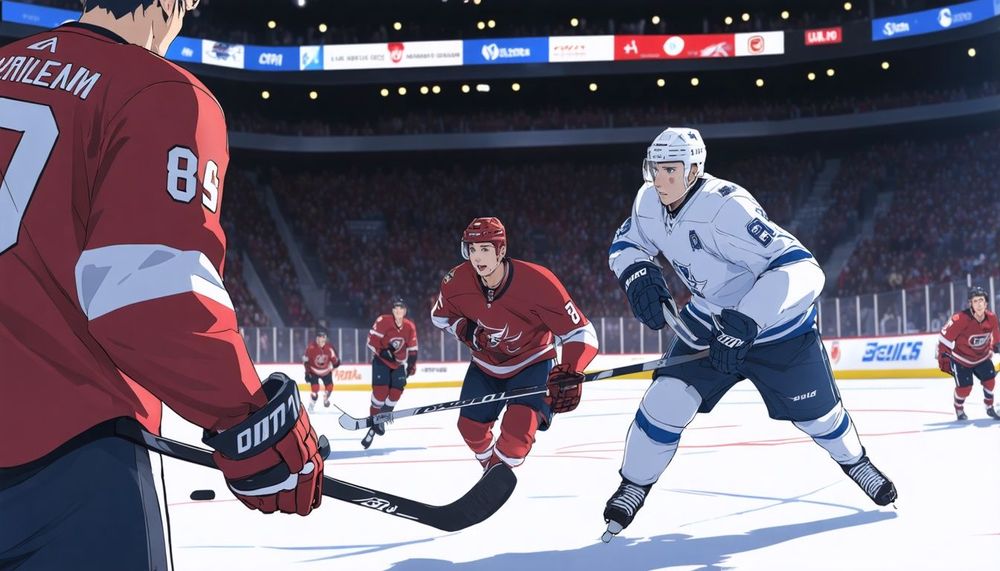Navigating the Pressure: Teams Striving for Stanley Cup Success

Pressure is a significant factor in the NHL, varying greatly from one franchise to another. While some organizations focus on development and playoff aspirations, others carry the heavy burden of expectation to secure the prestigious Stanley Cup, with the urgency often felt more acutely as the season progresses. The Florida Panthers have made reaching the Stanley Cup Final appear decidedly attainable in recent seasons, and their victory in the prior championship further exemplified their capabilities. Yet, achieving such success is complicated, and for various teams striving to break through and claim their first Cup, each unsuccessful season requires introspection and can make the journey increasingly difficult.
Among the franchises facing this pressure is the Toronto Maple Leafs. The team has undergone changes, including the departure of Mitch Marner during the summer when he opted not to re-sign. Though losing a player of Marner's caliber is challenging, the Maple Leafs still possess key talents like Auston Matthews and William Nylander and managed to retain John Tavares while extending Matthew Knies. Nonetheless, questions persist regarding the team's defensive capabilities as they age. The performance of Morgan Rielly as a top defenseman and the health of goaltenders Joseph Woll and Anthony Stolarz will be critical. General Manager Brad Treliving's moves indicate an intention to shape a more physical team in response to rising competition from teams like Florida, Ottawa, and Montreal. Should the Maple Leafs fall short again, fans may be left wondering if significant changes are necessary, even with star players like Matthews remaining.
The New York Rangers represent another team that might need to reevaluate their strategy following a disappointing season. It seems they've already initiated a transformation, having previously traded prominent players like Chris Kreider and K'Andre Miller. While this could signal an overhaul, their new approach—welcoming J.T. Miller and acquiring Vladislav Gavrikov under coach Mike Sullivan—shows a shift in focus. The Rangers flaunt a talented roster that includes Mika Zibanejad, Artemi Panarin, Adam Fox, Alexis Lafrenière, and Vincent Trocheck. With Igor Shesterkin in goal, the team remains a playoff contender. However, with Panarin becoming a free agent next summer, failing to win a Cup could instigate substantial changes for the franchise moving forward.
The Los Angeles Kings face their own crossroads, having been thwarted by the Edmonton Oilers in the playoffs for four consecutive years. Recent management changes involve Rob Blake's departure as GM, succeeded by Ken Holland, who acknowledges the aging core centered around veterans Anze Kopitar and Drew Doughty. Holland's decision to bolster the defense by signing seasoned players Cody Ceci and Brian Dumoulin illustrates an effort to maintain competitive viability. While the Kings are nurturing promising young talents like Quinton Byfield, Brandt Clark, Alex Laferriere, and Alex Turcotte, the anticipated transition remains overdue. If the team struggles this season or suffers another early playoff exit at the hands of the Oilers, discussions about parting with their veteran players may become increasingly relevant, as they must address the realities of an aging roster.
The Washington Capitals adopted a multifaceted strategy during last year's free agency, viewed by some as a desperate attempt to prolong their playoff prospects while providing veteran Alex Ovechkin essential support. Others saw it as a proactive measure following a surprising return to playoff contention. The acquisition of Jakob Chychrun was a notable move aimed at fortifying the blue line alongside John Carlson. The Capitals excelled in the regular season, finishing as the top team in the Eastern Conference, with Ovechkin's enduring presence ensuring continued competitiveness. The future of the franchise, particularly in the post-Ovechkin landscape, necessitates robust planning. Should the Capitals fail to replicate their successes and capture a Stanley Cup, reassessing their strategy will be vital.
The Dallas Stars emerge as an intriguing case heading into the new season, having dismissed head coach Pete DeBoer after multiple playoff disappointments, particularly following their third consecutive loss in the Western Conference Final. Glen Gulutzan, returning as head coach after a hiatus, represents a shift in strategy, as the Stars seek to reinvigorate their postseason ambitions. A key issue lingers regarding star forward Jason Robertson; as a restricted free agent next summer, he could become unrestricted in two years. With significant money already allocated to other key players, maintaining salary cap flexibility poses a challenge. If the Stars fall short again in their pursuit of playoff success, addressing Robertson's potential departure may prove to be a pivotal moment in their future.
The Edmonton Oilers are firmly positioned within a 'win-now' mindset, having come exceedingly close to capturing the Stanley Cup just two seasons ago, only to experience heartache after a seven-game series loss to the Florida Panthers. This past summer reasserted the team's competitive frustrations, further spotlighting roster weaknesses that are magnified against formidable opponents. As the Oilers advance into a pivotal season, the future of superstar Connor McDavid becomes increasingly concerning. Should the Oilers fail to secure a championship, and McDavid opts not to extend his contract, the organization might find itself faced with difficult decisions that could lead to a significant overhaul.






